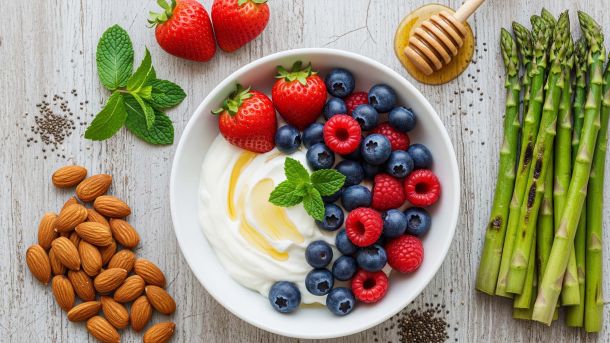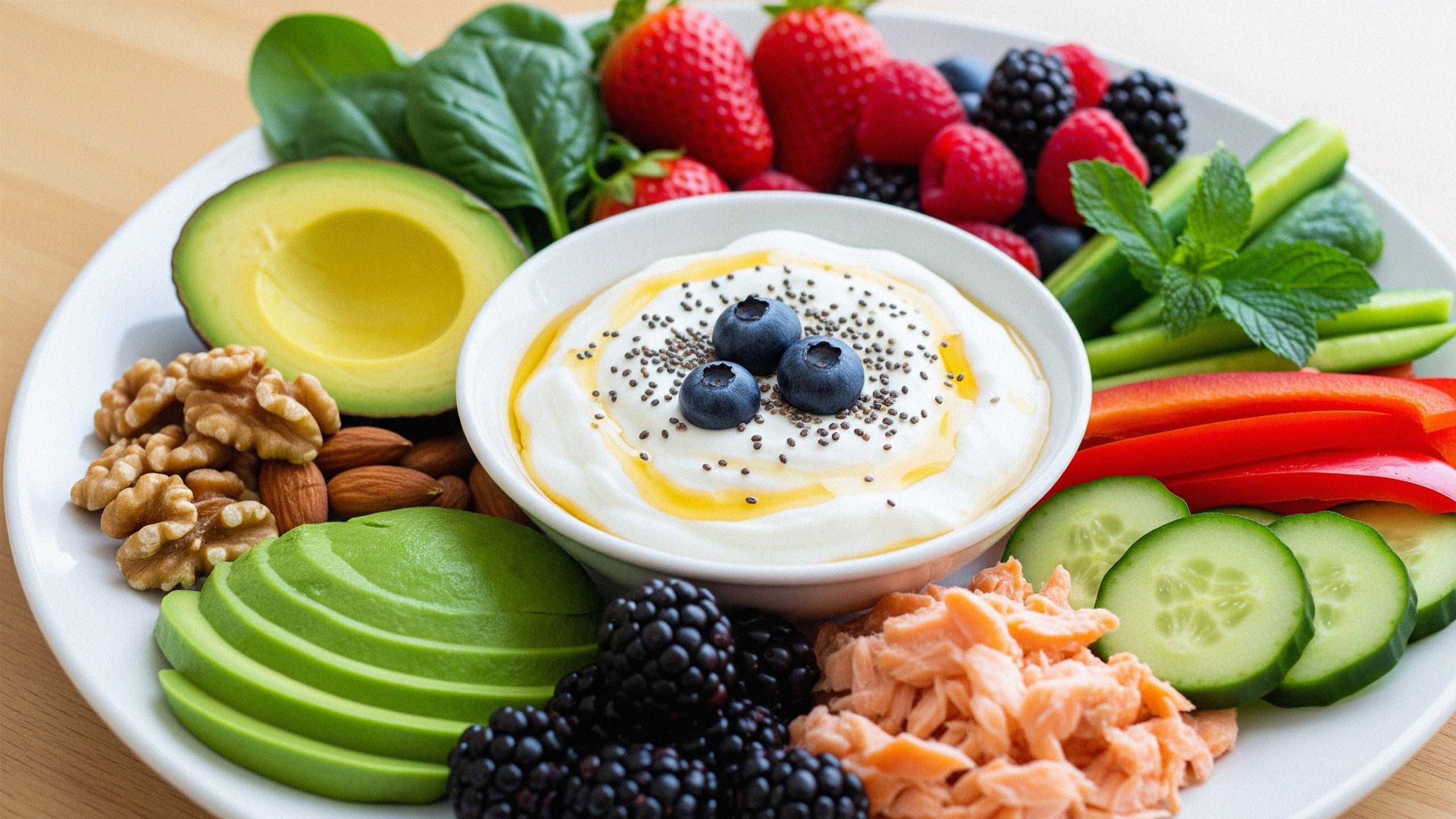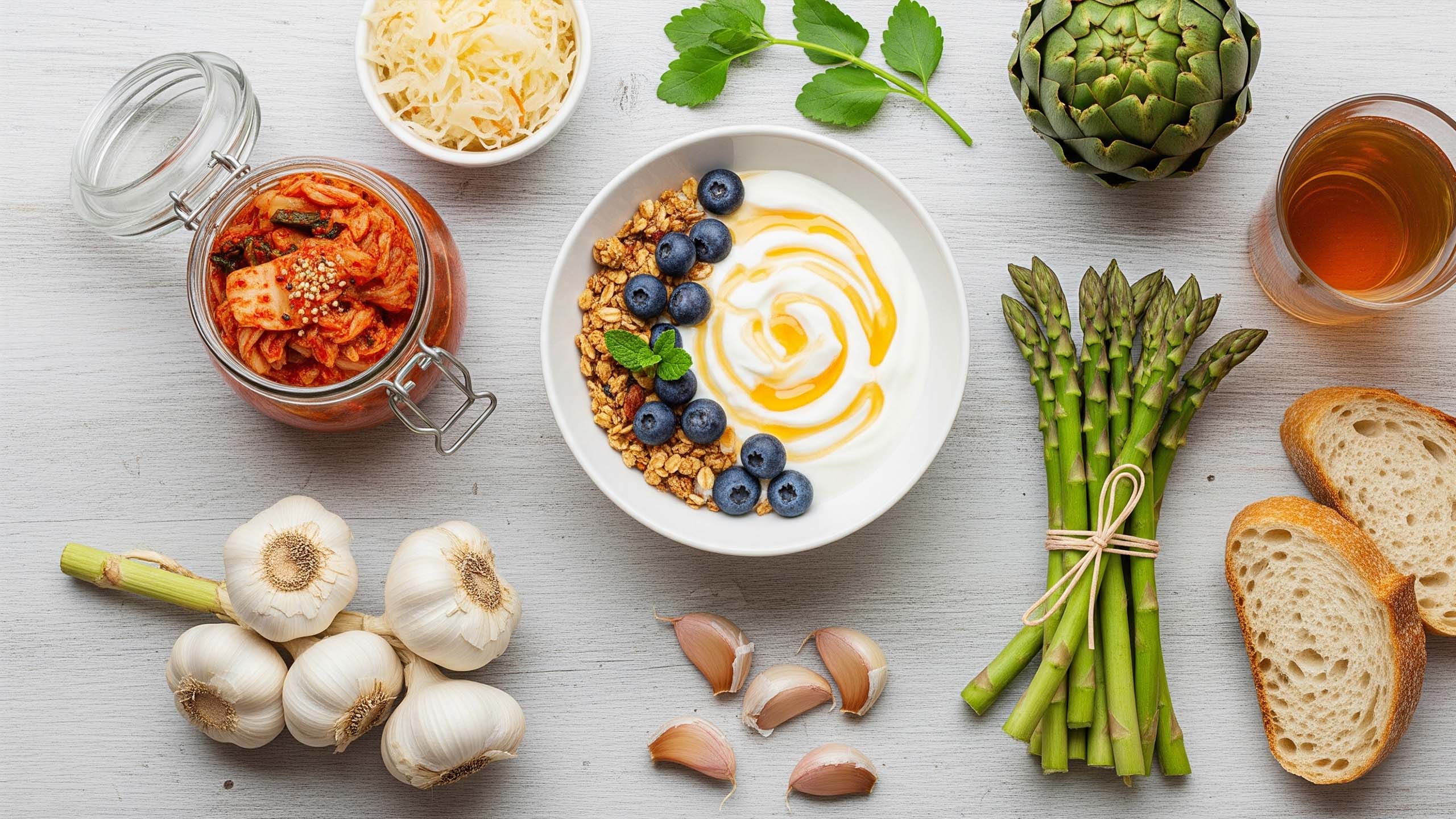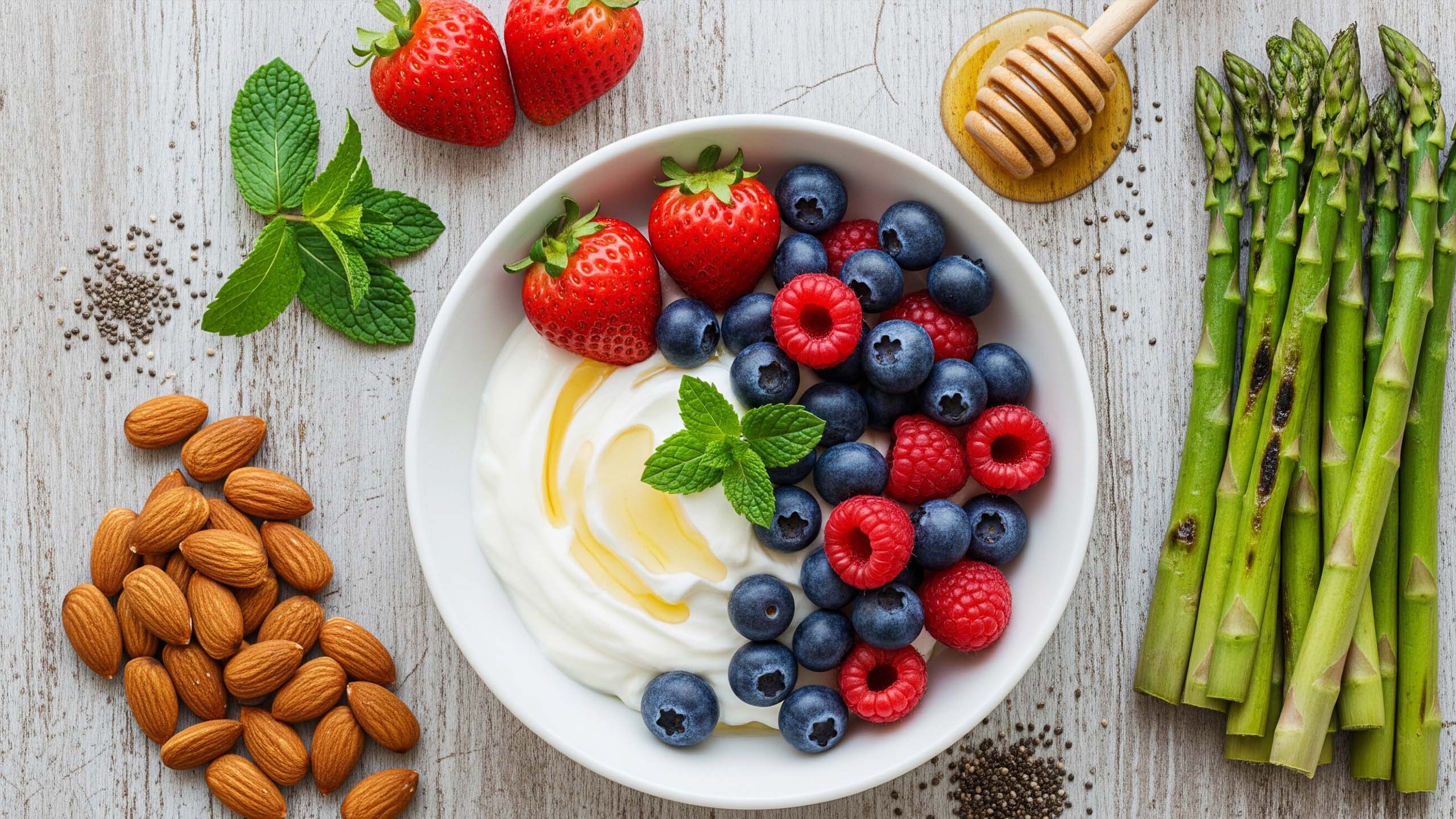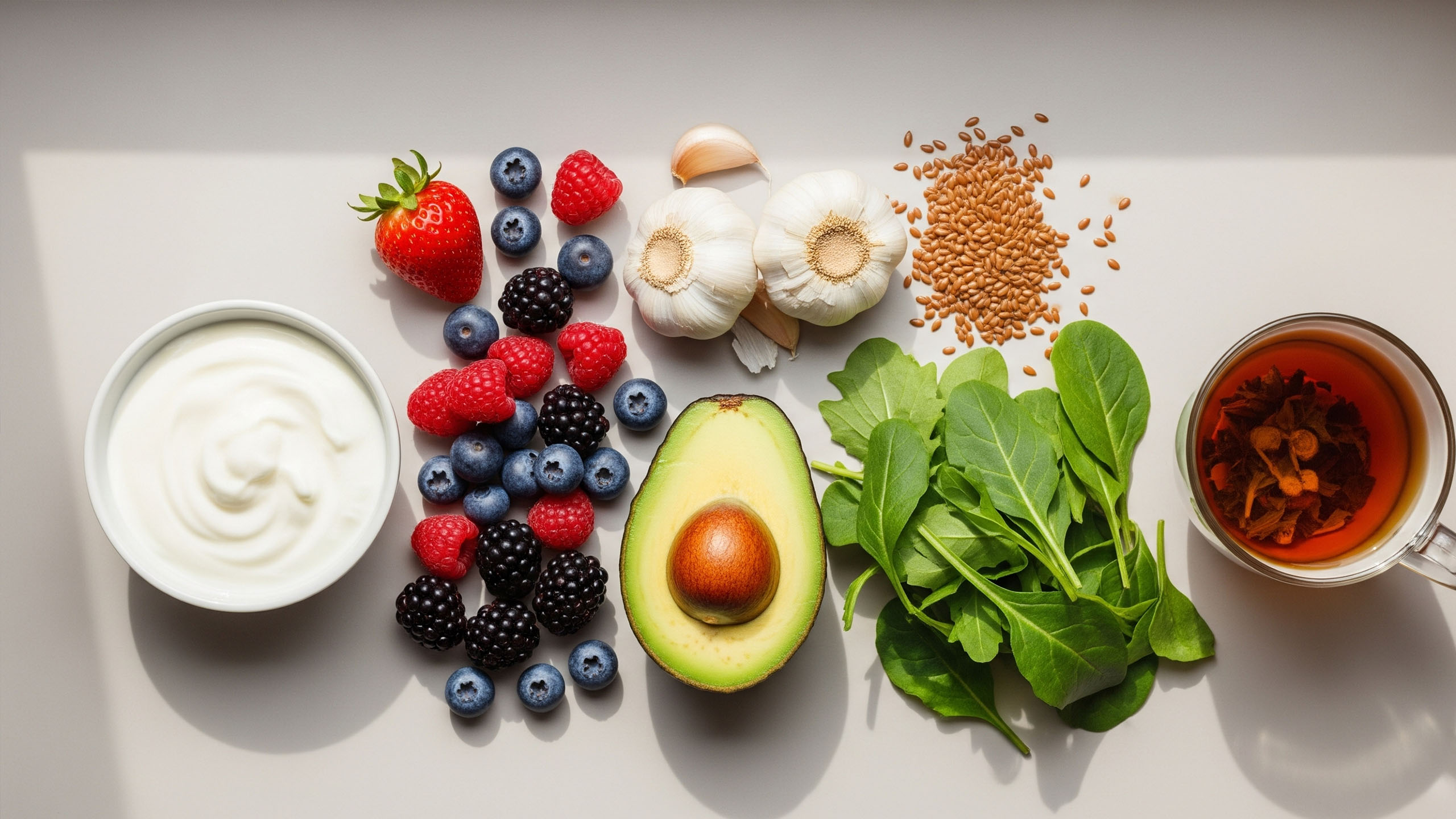A Guide to 10 Herbs for Hormonal Support and Reproductive Wellness
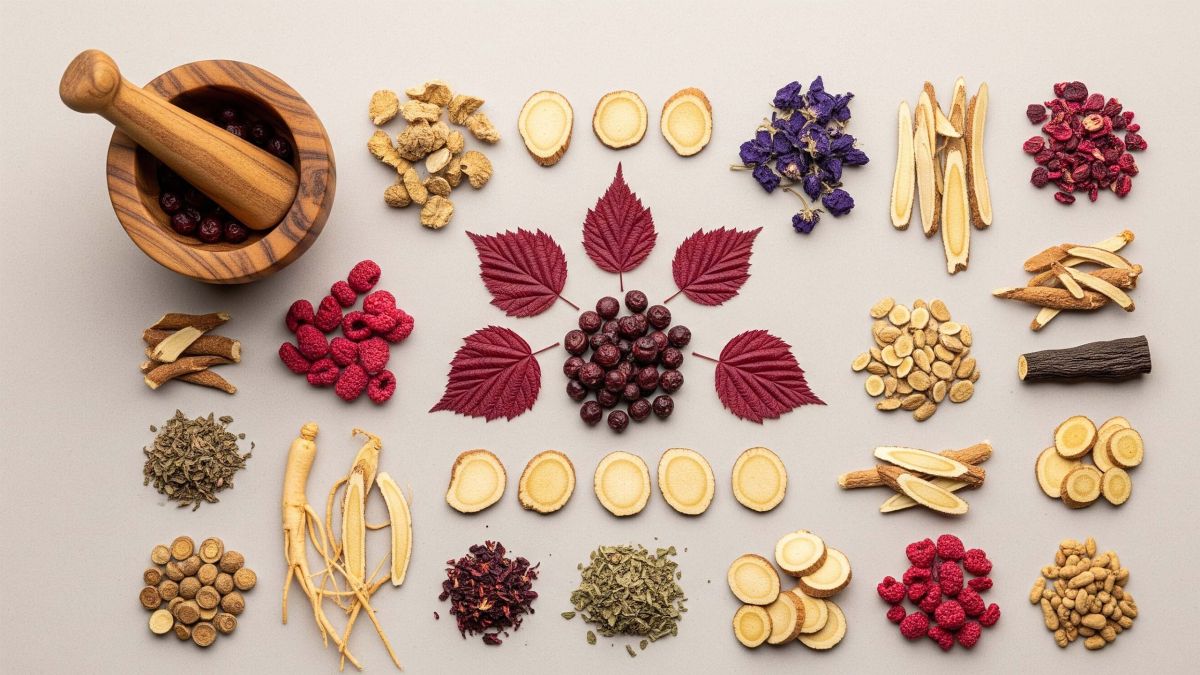
For centuries, various cultures have turned to botanicals to support female health. Hormonal fluctuations are a natural part of a woman's life, influencing everything from the menstrual cycle to mood and energy levels. While a balanced diet, consistent exercise, and stress management are foundational to well-being, certain herbs have traditionally been used to complement a healthy lifestyle.
This article explores ten herbs recognized for their role in supporting hormonal balance and overall reproductive health.
Important Note: The information provided is for educational purposes only and is not a substitute for professional medical advice. Always consult with a qualified healthcare provider before starting any new herbal supplement, especially if you are pregnant, nursing, taking medication, or have a pre-existing medical condition.
| Herb | Primary Traditional Use | Key Consideration |
|---|---|---|
| Chasteberry (Vitex) | PMS symptoms, menstrual regulation | May interact with hormonal medications. |
| Maca Root | Energy, libido, endocrine support | Can be stimulating for some individuals. |
| Ashwagandha | Stress management, adrenal support | Avoid with autoimmune conditions unless advised. |
| Red Raspberry Leaf | Uterine toning, menstrual cramps | Often used in late pregnancy; consult a provider. |
| Dong Quai | Menstrual irregularities, circulation | Has blood-thinning properties. |
| Black Cohosh | Menopausal symptoms (hot flashes) | Monitor liver health with long-term use. |
| Shatavari | Female tonic, libido, hydration | Belongs to the asparagus family. |
| Schisandra Berry | Liver support, stress resistance | Supports the body's natural detoxification. |
| White Peony Root | Hormone modulation, menstrual pain | Often used in combination with other herbs. |
| Licorice Root | Adrenal support, androgen modulation | Can affect blood pressure; use cautiously. |
1. Chasteberry (Vitex agnus-castus)
Often used for symptoms associated with premenstrual syndrome (PMS) and menstrual irregularities, chasteberry is one of the most well-known herbs for female health. It is thought to work by influencing the pituitary gland, which acts as the control center for hormone production. This may help regulate the balance between estrogen and progesterone.
2. Maca Root (Lepidium meyenii)
Hailing from the Andes mountains, Maca is a cruciferous vegetable that is considered an adaptogen—a substance that helps the body adapt to stress. Maca does not contain hormones itself, but it is believed to nourish the endocrine system, providing the building blocks needed to support healthy hormone production, energy levels, and libido.
3. Ashwagandha (Withania somnifera)
A cornerstone of Ayurvedic medicine, Ashwagandha is another powerful adaptogen. Its primary benefit is helping the body manage stress by supporting adrenal function and moderating cortisol levels. Since chronic stress and high cortisol can disrupt the delicate balance of reproductive hormones, Ashwagandha can offer indirect support for the entire system.
4. Red Raspberry Leaf (Rubus idaeus)
Frequently referred to as "the woman's herb," Red Raspberry Leaf is rich in vitamins and minerals, including iron, magnesium, and B vitamins. It is best known as a uterine tonic, traditionally used to strengthen the uterine muscles. This can be beneficial for easing menstrual cramps and preparing the uterus for childbirth.
5. Dong Quai (Angelica sinensis)
Used for thousands of years in Traditional Chinese Medicine, Dong Quai is often recommended to address menstrual concerns, including cramps, infrequent periods, and symptoms of menopause. It is believed to support healthy blood circulation to the pelvic region, nourishing the reproductive organs.
6. Black Cohosh (Actaea racemosa)
Black Cohosh is one of the most studied herbs for menopausal support. It is most commonly used to help manage symptoms like hot flashes, night sweats, and mood changes. While its exact mechanism is not fully understood, it appears to have a beneficial effect on the body's temperature regulation
7. Shatavari (Asparagus racemosus)
In Ayurveda, Shatavari is revered as a general tonic for the female reproductive system. The name translates to "she who possesses a hundred husbands," alluding to its traditional use for supporting vitality and libido. It is also used to help maintain healthy cervical mucus production and soothe the digestive tract.
8. Schisandra Berry (Schisandra chinensis)
This adaptogenic berry offers a wide range of benefits. For hormonal health, its most important role is supporting liver function. The liver is essential for metabolizing hormones and clearing any excess from the body. By enhancing liver health, Schisandra can contribute to a better hormonal equilibrium. It also helps improve resistance to stress.
9. White Peony Root (Paeonia lactiflora)
A staple in Traditional Chinese Medicine, White Peony Root is often paired with other herbs to help regulate the menstrual cycle. It is thought to promote healthy progesterone levels, reduce elevated androgens, and aid in building blood, making it useful for those with light or painful periods.
10. Licorice Root (Glycyrrhiza glabra)
Licorice Root acts as an adaptogen, offering support to the adrenal glands. It can also influence estrogen levels and may help lower androgens, which can be beneficial for certain hormonal imbalances. Due to its potential to affect blood pressure, it should be used with caution and under the guidance of a healthcare professional.
A Holistic Approach
Incorporating herbs can be a useful element in a broader strategy for wellness. A foundation of whole-foods nutrition, regular movement, adequate sleep, and effective stress management creates the right environment for hormones to function optimally. When considering herbal support, think of it as one piece of a larger picture of self-care. Before adding any of these herbs to your regimen, a conversation with your healthcare provider can ensure it is a safe and appropriate choice for your individual needs.
Disclaimer: The articles and information provided by the Vagina Institute are for informational and educational purposes only. This content is not intended to be a substitute for professional medical advice, diagnosis, or treatment. Always seek the advice of your physician or another qualified health provider with any questions you may have regarding a medical condition.


 Deutsch
Deutsch  English
English  Español
Español  Français
Français 